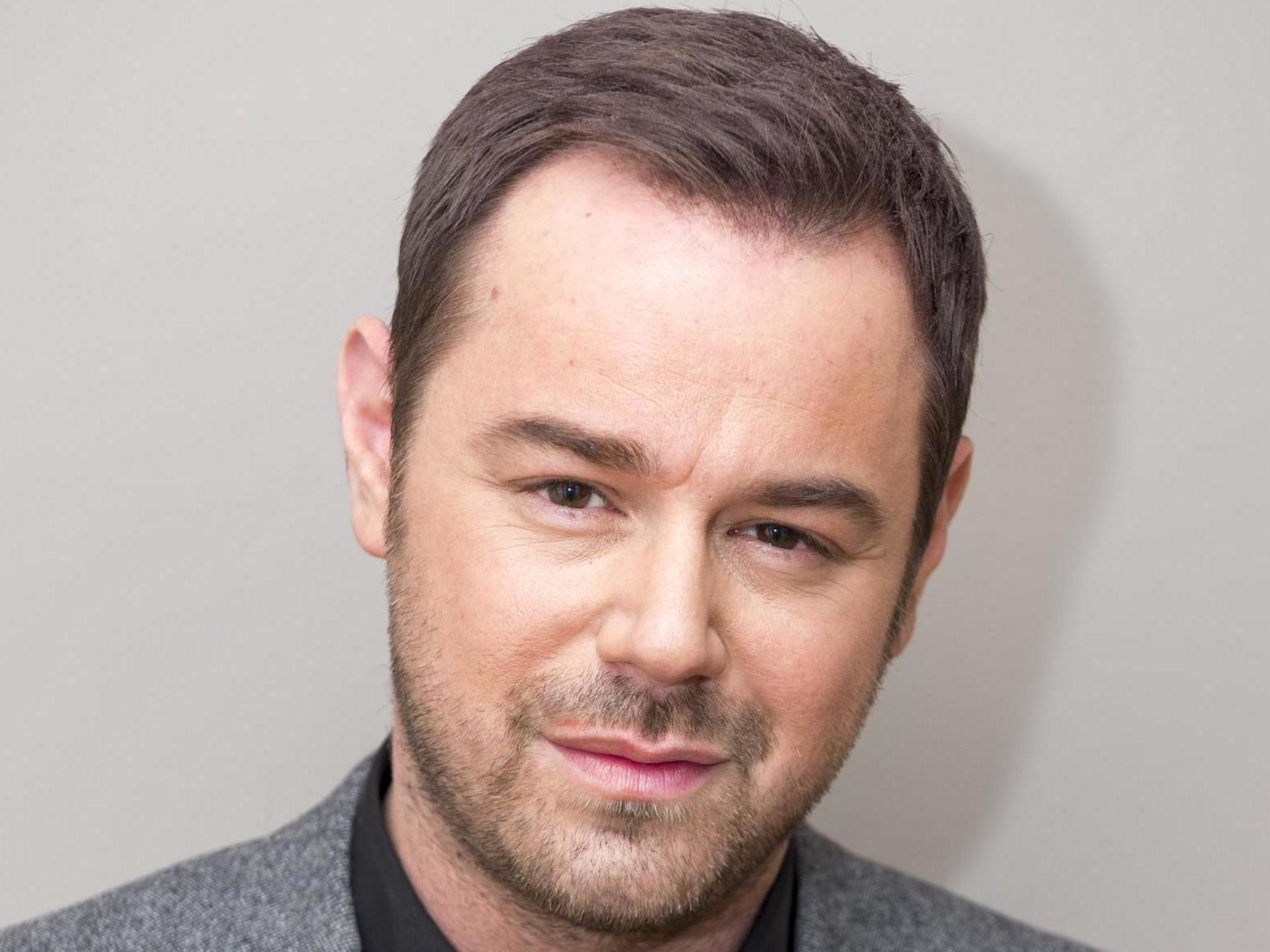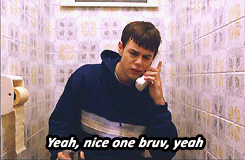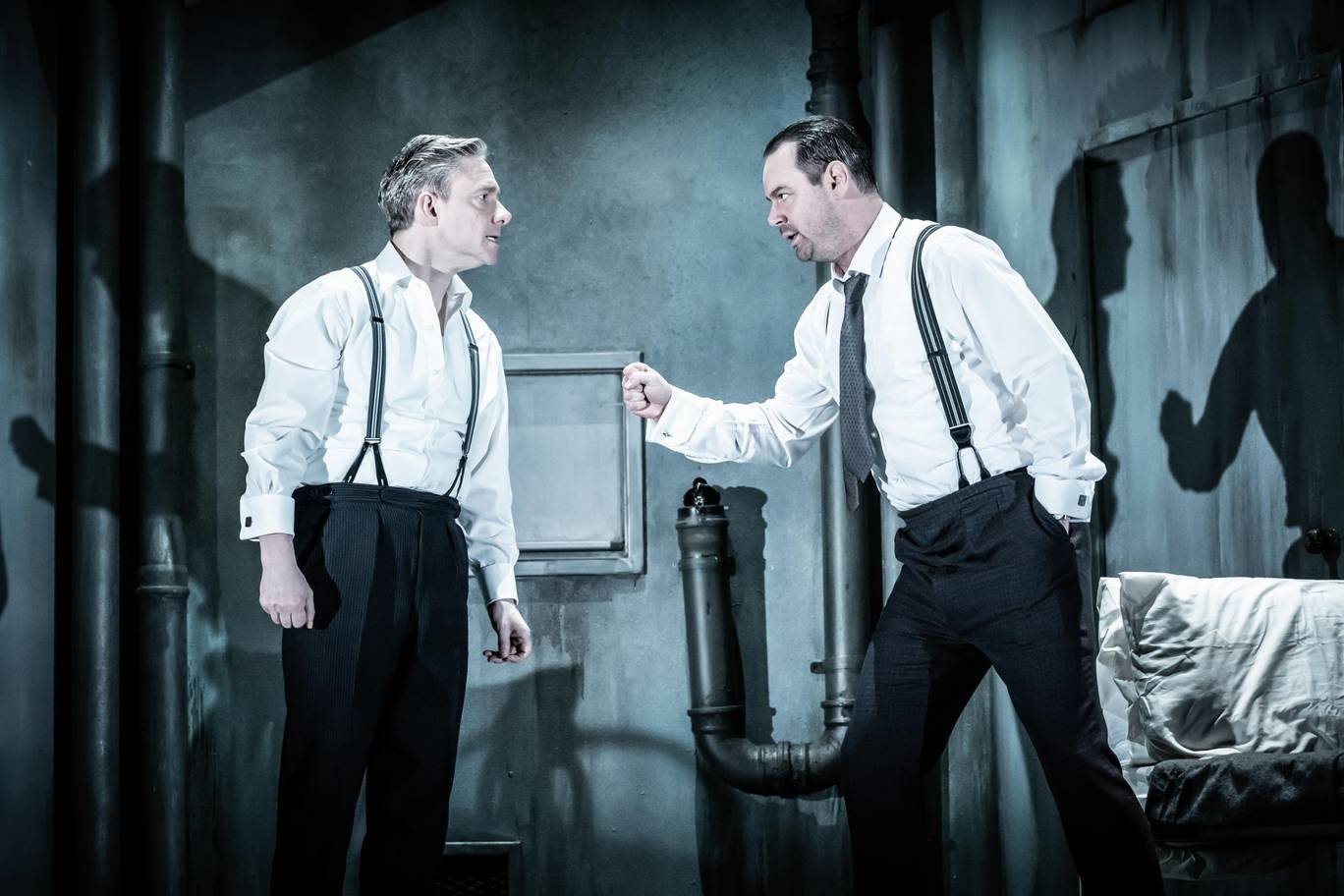The Independent's journalism is supported by our readers. When you purchase through links on our site, we may earn commission.
‘I’m gonna go save a couple of lepers’: The cult of Danny Dyer
Alexandra Pollard looks at how the actor went from ‘laughing stock’ to sweary national treasure and star of Harold Pinter’s ‘The Dumb Waiter’


There’s a thin line between laughing with someone, and laughing at them – and that line might just be Danny Dyer. The Cockney actor, star of films such as The Football Factory and Outlaw, and TV shows like I Believe in UFOs, has long been the target of critical vitriol. “Are there no depths to which Danny Dyer won’t plummet?” asked The Guardian after his film Run for Your Wife (2013) took just over £700 in its opening weekend. A few years earlier, the same publication suggested that “the public is growing less and less fond of his shtick”, and asked, “how can Danny save his career?”
He didn’t need their help there. Lately, Dyer’s star power is growing – buoyed by a tongue-in-cheek BBC documentary, a handful of crude but incisive political soundbites, and a starring role on stage in Harold Pinter’s The Dumb Waiter. The play, a sort of working-class Waiting for Godot, in which Dyer and Martin Freeman play two hitmen passing time before their next assignment, will be performed alongside A Slight Ache to mark 10 years since the death of the renowned playwright. It might come as a surprise to many of Dyer’s fans to learn that he was championed by Pinter himself early on in his career – though it will no doubt bolster his peculiar appeal. His is a strange kind of stardom, fuelled by an affection that is somehow both ironic and genuine.
“I do love a moat, me,” Dyer confesses in his new BBC history documentary Danny Dyer’s Right Royal Family. The show came about after Dyer discovered, during an appearance on a 2016 episode of Who Do You think You Are?, that he is a direct descendent of Thomas Cromwell, King Edward III and William the Conqueror. Watch him parade down the street dressed as 13th-century French king Saint Louis (another ancestor, apparently, though it’s getting pretty tenuous at this point), pronouncing, “I’m gonna go and save a couple of lepers”, and it is immediately obvious that he’s in on the joke.
But light-hearted though the programme may be, there are certain criticisms that rub Dyer up the wrong way. “I know there’s been a little bit of bad press around this, from people who haven’t even watched a second of it, about how the BBC is dumbing down history, just because maybe I’ve got a working-class accent,” he said recently. “I don’t get it. A lot of people might be bored of that boring history formula, and I think [this is] a different way to learn... I like to embrace every historian with a big cuddle at the beginning, you know, to make them settle down, and just have an old chinwag about medieval history.” Though perhaps calling an academic historian a “little treacle” wasn’t entirely appropriate, he has a point.
Raised on a council estate in London by his mother and grandmother (his father left home when he was nine), Dyer initially got into acting after he was spotted by a talent agent at his local Sunday school. A small part on Prime Suspect soon followed, but it was his first film role in 1999’s Human Traffic, as petty drug dealer Moff, that put him on the map. Twenty years on, the film remains a cult classic – one particular scene, in which his character sits on the toilet yelling “nice one bruva!” down the phone to John Simm, has spawned endless GIFs and memes. “That role was me,” Dyer later said. “I was still living it then. That audition is the only one I ever had where the first question was, ‘Do you take drugs?’ I said, ‘Yes. I love drugs.’ They were like: ‘Perfect.’”

Three years earlier, Dyer’s girlfriend Joanne Mas (now his wife) had given birth to a daughter, Dani (who last year won the nation’s hearts on the ITV reality show Love Island). That he had a small child depending on him only fuelled his determination. “I looked at all the other actors with complete disdain,” he said, “and thought, ‘What? You want to take f***ing food out of my kids’ mouths?’ It gave me this extra drive.”
It was his role in Human Traffic, for which Dyer was described by critics as “fun to watch” and “consistently charming”, which caught the attention of Harold Pinter.
Pinter saw something in Dyer, who cast him in the first run of his new play, Celebration, in 2000. A year later, Dyer starred in Pinter’s No Man’s Land at London’s National Theatre, and in 2008 was recruited a third time by the playwright for The Homecoming. “He made me the man I am today,” Dyer told The Telegraph.

But somewhere between his promising start and around 2010, Dyer started to become, as he recently admitted in an interview with the i, “a laughing stock”. His endlessly slated collaborations with the director Nick Love, including The Football Factory (2004), The Business (2005), and Outlaw (2007) didn’t help. Nor did his blunt, bawdy refusal to accept criticism. “Facking broadsheet c***s,” he said of critics in the infamous DVD commentary for Outlaw. “We work our f***ing bollocks off, do you know what I mean?” When critic Mark Kermode mercilessly mocked Dyer’s performance, Dyer said he would give him a “headbutt straight to the f***ing nose” if their paths ever crossed.
But it was a frighteningly poor-taste “joke” in his “Ask Danny” advice column for Zoo magazine that nearly derailed his career. In the column, which Dyer later admitted was written by a journalist who had transcribed his words down the phone, he was asked how a reader could get over his ex-girlfriend. “I’d suggest going out on a rampage with the boys, getting on the booze and smashing anything that moves,” he “wrote”. “Then, when some bird falls for you, you can turn the tables and break her heart. Of course, the other option is to cut your ex’s face, and then no one will want her.” The whole piece was deeply unpleasant, but it was that final addendum that was most abhorrent. Dyer has since apologised, claiming he never intended for the journalist to use that part. “It just makes me feel sick that people would believe that I’m this misogynist who would advise somebody to cut a woman’s face,” he said, “especially with two daughters and having been brought up by women. I adore women… I love everything about them.”
Somehow, though, ever since he landed a role in EastEnders (a soap he previously said he’d only do “when I’m fat, bald and 50”) in 2013, Dyer has managed to turn the tide of public opinion back around. These days, he aims the fusillade of barbs and F-bombs that is his lingua franca towards those who might actually deserve it. “What’s happened to that twat Cameron who brought it on?” he said of Brexit, live on an evening edition of Good Morning Britain last year. “Let’s be fair. How come he can scuttle off? He called all this on. Where is he? He’s in Europe, in Nice with his trotters up. Where is the geezer? I think he should be held accountable for it. Twat.”

Speaking of Trump on Channel 4 show The Last Leg, Dyer said, “He’s just off his nut, this geezer. He’s a cartoon. You just sit back and go, ‘How the f***ing hell has that happened?’” He’s also demonstrated a more nuanced view on benefits than many Tory MPs: “I know plenty of people on benefits who work hard – it’s just they don’t get paid enough to cover the basics of life.” In a world of empty words and political bluster, Dyer struck a chord.
A few weeks ago, Dyer’s role as Mick Carter on EastEnders earned him a third National Television Award. “I just want to say to all you young kids living in poverty,” he said in his speech, “who don’t think they have a right to hope or dream or believe, do not let where you’ve come from define where you’re going in life. You can be whoever you want to be.” Deeply flawed though he may be, Dyer is the perfect example of just that.
Pinter Seven is at the Harold Pinter Theatre, London, until 23 February (0844 871 7622)
Join our commenting forum
Join thought-provoking conversations, follow other Independent readers and see their replies
Comments
Bookmark popover
Removed from bookmarks